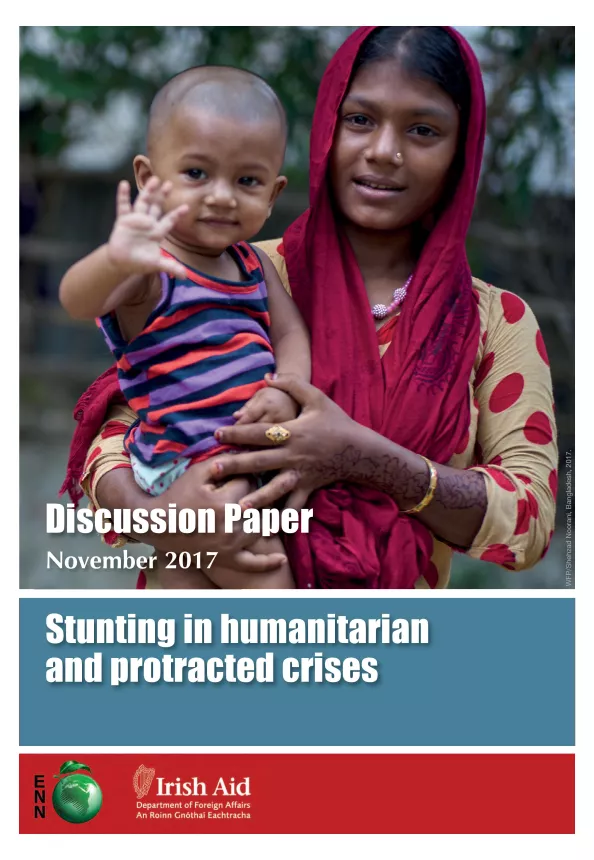Stunting in protracted crises: discussion paper
Publication details
Currently, the level of attention afforded to linear growth below international standards (stunting) in humanitarian and protracted emergency contexts is below what is needed, given the very high burden and prevalence of stunting in these contexts. A good deal of the policy, research and programming focus is directed towards the treatment of wasting in order to prevent excess mortality among children under five years of age. Yet stunting (both moderate and severe) can be highly prevalent in protracted situations, e.g. Syria, Yemen, Niger, Mali, and a considerable proportion of the global burden of stunting is located in these and other fragile and conflict-affected states (FCAS). Moreover, severe stunting is associated with a higher risk of mortality than moderate wasting, although knowledge of the causes of this elevated risk is limited. Evidence also suggests that being both stunted as well as wasted concurrently confers an even higher risk of mortality. It is likely that the drivers or underlying causes of stunting, if left unchecked, will lead to increases in the burden of stunting in FCAS and other crisis-affected contexts.
The investigation aimed to build on ‘joined-up’ thinking, addressing some of the gaps in knowledge on stunting in humanitarian and protracted contexts, and asking whether a new objective is called for; namely that a reduction in stunting (or at least no increase) should be viewed as a legitimate humanitarian goal in the same way that prevention and treatment of wasting is being seen as a legitimate development goal.
This paper outlines the many difficulties of gaining a clear understanding of the needs and then mounting an effective nutrition response to tackle stunting in FCAS, which include:
- High (and in some cases, increasing) burden of stunting.
- Lack of routine reporting for severe stunting prevalence.
- Lack of clear assessment or monitoring data on stunting and difficulties in accessing vulnerable populations.
- Lack of evidence for the types of stunting prevention strategies that can be implemented across multi-sector programmes with short-term funding and in FCAS contexts.
- Lack of attention to maternal nutrition needs, despite the fact that the critical importance of the antenatal period to stunting in infants is well understood.
- Lack of evidence for the effectiveness of multi-sector interventions, particularly in humanitarian contexts, including how to ‘stretch’ the limited humanitarian funding to include interventions that reduce stunting along with those that prevent and treat wasting.
- Limited understanding of how to protect the ‘development’ gains in stunting reduction made pre-crisis in the context of intermittent or recurrent crises eroding the resilience of affected populations.
Although this investigation has raised more questions than can currently be answered, a number of ways forward are outlined below to be discussed during a series of discussions with individual experts and via an ENN webinar planned for early 2018. This will be followed by an ENN-hosted roundtable discussion, also in early 2018. The details underpinning these suggested ways forward are found in the main paper.

